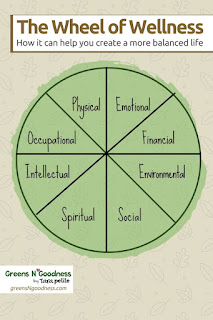In today's rapidly evolving digital landscape, education is undergoing a profound transformation. As technology continues to reshape the way we live, work, and learn, educators and learners alike are faced with both challenges and opportunities in navigating education in the digital age. From online learning platforms and interactive digital tools to virtual classrooms and artificial intelligence, the digital revolution is reshaping the future of education in ways that were once unimaginable. In this article, we'll explore the implications of this digital transformation and how embracing innovation can unlock new opportunities for learners of all ages.
The Digital Revolution in Education
The digital revolution has fundamentally changed the way education is delivered and accessed. Online learning platforms and digital resources have made education more accessible than ever before, breaking down geographical barriers and providing learners with unprecedented flexibility and convenience. From Massive Open Online Courses (MOOCs) to educational apps and interactive e-books, learners now have access to a wealth of educational content at their fingertips, anytime and anywhere.
Furthermore, advancements in technology have revolutionized the classroom experience, enabling educators to incorporate multimedia resources, simulations, and virtual reality tools into their teaching practices. Virtual classrooms and video conferencing platforms have made it possible for students to connect with teachers and peers from around the world, fostering collaboration and cultural exchange on a global scale.
Embracing Innovation in Education
As we navigate education in the digital age, it's essential to embrace innovation and harness the transformative potential of technology to enhance teaching and learning outcomes. Educators must adapt to the changing landscape of education by integrating digital tools and resources into their pedagogical practices, fostering digital literacy skills, and promoting lifelong learning in an increasingly digital world.
Moreover, education stakeholders, including policymakers, educational institutions, and industry leaders, must collaborate to create an enabling environment for innovation in education. This includes investing in infrastructure, providing professional development opportunities for educators, and ensuring equitable access to technology and digital resources for all learners, regardless of socio-economic background or geographic location.
Opportunities for Learners
The digital age presents myriad opportunities for learners to engage with educational content in innovative and interactive ways. Online courses and digital learning platforms offer learners the flexibility to tailor their learning experiences to their individual needs and preferences, whether it's through self-paced modules, interactive quizzes, or multimedia resources.
Furthermore, technology enables personalized learning experiences that cater to the diverse needs and learning styles of individual learners. Adaptive learning algorithms and artificial intelligence tools can analyze learner data to provide customized recommendations and feedback, helping learners to progress at their own pace and achieve their learning goals more effectively.
Challenges and Considerations
While the digital transformation of education offers numerous benefits, it also poses challenges and considerations that must be addressed. Digital literacy skills are essential for navigating the digital landscape effectively, and educators must ensure that learners have the skills and competencies to critically evaluate information, protect their privacy, and navigate online platforms safely and responsibly.
Additionally, there are concerns about the digital divide, which refers to the gap between those who have access to technology and digital resources and those who do not. Addressing issues of digital equity and inclusion is crucial for ensuring that all learners have equal access to educational opportunities and can fully participate in the digital age.
Conclusion
As we navigate education in the digital age, embracing innovation and leveraging technology can unlock new opportunities for learners of all ages. By harnessing the transformative power of technology, educators can create engaging and interactive learning experiences that inspire curiosity, foster creativity, and empower learners to succeed in an increasingly digital world. However, it's essential to address challenges such as digital literacy, equity, and inclusion to ensure that the benefits of the digital revolution are accessible to all. As we embrace innovation in education, let us work together to create a future where every learner has the opportunity to thrive and succeed in the digital age.











